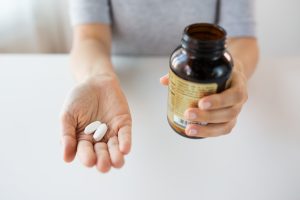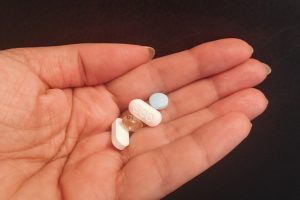Sinusitis is a condition where the sinuses become infected. A sinus is a part of your skull that drains mucous from your nose. Most people have one or two functioning sinuses, but some may have extra sinuses in the forehead above the eyes or the cheekbones. You will likely get recurrent infections if you have constant clogging of the sinuses and chronic congestion. The best way to manage this is by keeping your nose clear with decongestant sprays like Flonase. Read this article to learn about using Flonase for sinus infection.
Sinusitis can cause symptoms such as a blocked nose, pain when breathing in, and headaches when they become infected. Anyone can get a sinus infection, but it is more common in winter and spring. One way to clear your nose is with a decongestant spray like Flonase. The benefits of this include clearing the sinuses, reducing swollen mucous membranes, and alleviating pressure in the sinuses. It can also help prevent future problems by reducing the chance of infection. In addition, with Flonase, you can get relief from congestion in just minutes!
What Is Flonase?
Flonase is a nasal spray. It treats chronic congestion, sinusitis, and other sinus conditions. It opens your nasal passages to allow nasal discharge and air to flow freely through the nose. This allows the upper airway to drain correctly and decreases your risk of infection. You should use it every day for at least 4 weeks before seeing any significant improvement in your symptoms or complications associated with chronic congestion. You can also use Flonase for sinus infection as needed for pain relief or discomfort.
How long does Flonase take to work for sinus infection?
It can take 10 minutes to an hour for Flonase to kick in. Once it does, you will feel relief almost immediately. If you are experiencing a more severe sinus infection, then it may take longer for the drugs to take effect. If this is the case, you should seek medical advice as soon as possible.
How often can you use Flonase for sinus infections?
You may use this medication every day for up to 10 days. When using it for the first time, it is recommended that you start with one dose a day for up to two to three days. If your symptoms clear up quickly, you can increase the dosage to two daily. If your symptoms worsen, then it is best to stop using Flonase.
When should you not use Flonase?
You should not use Flonase for sinus infection if you are allergic or sensitive to any of its ingredients. You should also avoid this medication if allergic or sensitive to decongestants, such as pseudoephedrine, phenylephrine, and phenylpropanolamine. It is also not recommended if you have asthma or nasal polyps because this medicine will worsen these conditions.
Does Flonase loosen up mucus?
Flonase is an over-the-counter drug that helps to loosen up mucus. Monosodium l-glutamate (MSG) is a compound that induces nitric oxide production when introduced into the nose.
Nitric oxide has a free radical scavenging effect which reduces inflammation and aids in the loosening process of mucus. Regularly using this drug makes you less likely to have long-term effects on your nasal passages and sinuses, like scar tissue or adhesions.
Does Flonase dry up sinus drainage?
Flonase is a nasal spray that helps to relieve nasal drainage and inflammation. However, it has the side effect of dripping your eyes, which can lead to dryness and redness of the eye. In addition, Flonase is meant for short-term use and will often cause rebound congestion if used too often. So it’s essential to use a decongestant only when necessary, as these products aren’t designed for long-term use.
What are the dangers of Flonase?
Many dangers are associated with Flonase, including allergic reactions and potential side effects. Flonase is not recommended for people with asthma, as it can worsen their condition.
Flonase should also be avoided by pregnant or breastfeeding women as it can affect the baby’s brain development. Some people may also experience dry mouth, dizziness, hives, nausea, and vomiting.
When is the best time to use Flonase nasal spray?
The best time to use this medication is when you feel a cold or a sore throat coming on. It’s also good to use it after exercise when you’re congested. However, if you constantly need to clear your nose, saline nasal sprays and drops are not enough. You may have sinusitis or allergic rhinitis and require antibiotics. This can be determined by an ENT doctor who can diagnose the cause of your illness.
Is Flonase like a steroid?
Flonase is a nasal spray and not a steroid.
Side effects of Flonase for sinus infection
Flonase has some side effects you should be aware of before taking it. Some of the most common include drowsiness and dry mouth. In addition, Flonase may not be suitable for you if you are also on other medications. Finally, knowing that some people might experience worsening symptoms after taking this medication is also essential.
Does Flonase weaken the immune system?
This is a question many people ask about Flonase. The brief answer to this is no, and it does not. If you use Flonase as directed, there will be no adverse side effects on your immune system.
Any negative effects that happen are typically a result of overuse. As long as you follow the package instructions and apply the spray two times a day for the recommended duration, you should not experience any adverse effects from using Flonase.
Is it okay to use Flonase every day?
Some people may be concerned about the side effects of using Flonase every day because it contains a substance called pseudoephedrine, which is an ingredient in cold and allergy medicines. But this is not something to be worried about. This can cause drowsiness and increase your heart rate, but it’s not dangerous. The best way to use Flonase for sinusitis is by spraying it onto your tongue or underneath your nose.
However, it is also possible to use drops in water up one nostril while sleeping or by adding it to boiling water and inhaling the steam through the other nostril. In addition, you should use a nasal decongestant spray like Flonase if you have chronic sinus clogging because they usually relieve long-term symptoms such as congestion and pain when breathing in.
Frequently Asked Questions (FAQs)
It is safe to use Flonase (fluticasone propionate) at night, but there are some things you should remember. First, Flonase only works when you apply it to the inside of your nose. So, it will not help your sinuses much if you put it up your nose.
Also, if you have a long-term illness or a chronic condition like asthma or allergies, then the effects of Flonase may be more painful than helpful. Symptoms of these conditions may flare up more when you start using Flonase. Finally, some people are more sensitive to Flonase than others.
So, if your sinus infection symptoms flare up more with this medication, try a different one.
You should stop using Flonase if you have a cold because it can cause worse symptoms. Also, you should not use it if the infection is nasty or you have trouble breathing. If you have a cold, you will often have blocked nasal passages and a runny nose filled with mucus. These symptoms make breathing hard, so using Flonase will worsen your condition. The best thing to do is to rest and drink a lot of fluids to help clear your nasal passage.
If you don’t want to miss using Flonase completely, try using a decongestant nasal spray or drops. This will help open up your nasal passage so that you can breathe better and avoid getting an infection in the first place.
Flonase (fluticasone propionate nasal spray) does not worsen your sinuses, but it may help you if you have a condition causing your sinus to drain poorly. For example, if you have a chronically blocked nose that isn’t draining correctly, use Flonase nasal spray as directed. This product is designed to help reduce the symptoms of congestion and stuffiness in your nose. It also helps open up your nasal passages so better drainage can occur.
This drug may not effectively treat your condition if your symptoms are related to an acute sinus infection. You may need stronger medication. However, if you already have chronic sinus problems, this drug will help relieve them.
Flonase (fluticasone propionate nasal spray) does not help with an upper respiratory infection (URI). URI is a nose infection that causes inflammation and redness in the nasal passage. Flonase is one of the steroid nasal sprays with long-lasting action that treats airflow obstruction caused by nasal polyps. Fluticasone Propionate nasal spray is not indicated for the treatment of URI.
Sinus headaches are not very common, but they can be annoying. If your sinuses get infected, you can develop chronic nasal congestion called chronic sinusitis. This can cause pain, pressure, and headache. The pain will usually come on just before or after you go to sleep. Unfortunately, there is not a lot that You can do to ease this pain. You can take over-the-counter pain medications such as Tylenol or Advil; if that does not work, you may want to see your doctor. There are medications they can prescribe that may help with the pain.
Are there alternative treatments for sinusitis
There are a number of alternative treatment options that can help ease your sinusitis symptoms. An effective home remedy is nasal irrigation which involves using Neti pots to ease the congestion. Sometimes, your doctor may recommend sinus surgery for chronic sinusitis. Nasal sprays also ease acute sinusitis symptoms like a postnasal drip.





